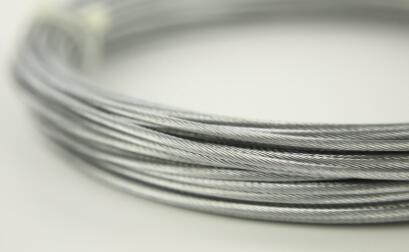The Best Nails for Concrete Walls A Comprehensive Guide
When it comes to hanging items or securing structures to concrete walls, choosing the right fasteners is crucial. Unlike wood or drywall, concrete presents unique challenges due to its density and hardness. Therefore, understanding the best types of nails and fasteners for concrete walls can make a significant difference in ensuring durability and reliability in your projects.
Types of Nails for Concrete Walls
1. Concrete Nails Concrete nails are specifically designed to be driven into concrete and masonry. They have a hardened steel composition, which allows them to withstand the tough surface of concrete. These nails possess a smooth shaft with a fluted point, making them easier to drive into the hard material without bending. However, it's important to use a hammer or mallet specifically to prevent damage.
2. Masonry Nails Similar to concrete nails, masonry nails are made from high-strength steel and are used to fasten materials to concrete, brick, or block. They feature a thicker shaft than ordinary nails and have a sharp, fluted tip for better penetration. When working with light structures or hanging items, masonry nails are a good option due to their strength and reliability.
3. Screw Anchors For heavier objects, traditional nails may not provide the necessary support. Instead, screw anchors, also known as expansion anchors, should be considered. These anchors are inserted into a pre-drilled hole and expand when a screw is driven into them, providing a secure hold in the concrete. They come in various materials such as plastic, metal, or zinc-coated to prevent rusting.
4. Tapcon Anchors Tapcon screws are versatile fasteners specifically engineered for concrete, brick, and block. They feature a unique thread design that allows them to cut into the concrete as they are driven in. Tapcon anchors provide a strong hold for mounting hardware and can be used for various applications, from securing shelves to attaching fixtures.
5. Sleeve Anchors Sleeve anchors are another excellent option for fastening heavy objects to concrete walls. These anchors consist of a bolt and a sleeve that expands when inserted into a drilled hole and tightened. Sleeve anchors are suitable for medium to heavy loads, making them ideal for mounting brackets, railings, or other heavy fixtures.
Choosing the Right Fastener
When selecting the best nails or fasteners for your concrete walls, consider the following factors
best nails for concrete walls

- Load Requirement Assess the weight of the object you intend to hang or secure. For lightweight items, concrete nails or masonry nails may suffice. For heavier installations, consider screw anchors, Tapcon anchors, or sleeve anchors.
- Wall Condition Inspect the concrete wall for any pre-existing damage or significant wear. If the wall is crumbling or deteriorating, additional reinforcement may be necessary, or alternative fastening methods should be considered.
- Environment Consider the environment in which the fasteners will be used. If the area is exposed to moisture, rust-resistant materials like galvanized or stainless steel should be chosen to prevent deterioration.
- Installation Some fasteners require more extensive installation processes, such as drilling holes or using special tools. Ensure you have the necessary equipment and skills, or seek professional assistance if needed.
Installation Tips
To achieve a secure and effective installation, follow these tips
- Pre-drill Holes When using concrete nails or anchors, pre-drilling holes is essential. Use a hammer drill with a masonry bit to create a clean hole that matches the diameter of your chosen fastener.
- Use a Hammer and Safety Gear When driving concrete nails or other fasteners, wear appropriate safety goggles and gloves to protect yourself from debris.
- Check for Wiring and Plumbing Before drilling, ensure there are no electrical wires or plumbing behind the wall. Use a stud finder or similar tool to locate these potential hazards.
In conclusion, securing items to concrete walls requires careful consideration of the appropriate nails and fasteners. With options ranging from concrete and masonry nails to advanced screw anchors and sleeve anchors, you can find the right solution for your specific needs. By understanding the installation process and paying attention to factors such as load requirements and environmental conditions, you can ensure the longevity and effectiveness of your concrete installations.

















